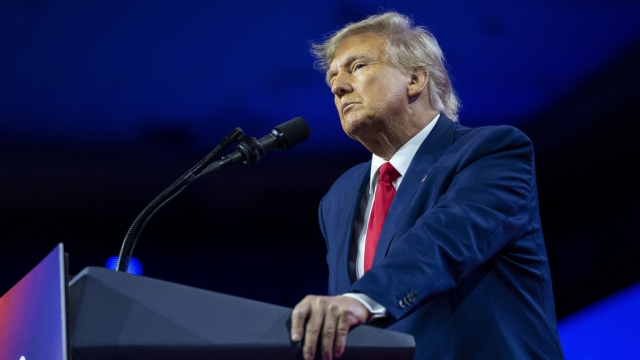Former President Donald Trump said he expects to be arrested on Tuesday as part of the Manhattan District Attorney’s Office probe into hush money payments made to adult film actress Stormy Daniels.
Manhattan District Attorney Alvin Bragg has not confirmed an arrest is imminent, and prosecutors are continuing to question witnesses.
If Trump’s prediction is accurate, it would mark the first time a former president has been indicted. Given that federal law requires former presidents to be protected by the Secret Service at all times, there are many questions about what the process would be like to arrest a former president.
According to Dave Aronberg, Florida state attorney for Palm Beach County, there is little chance that local officials in Manhattan would be able to place Trump in custody initially. Trump is a resident of Palm Beach County.
“The district attorney's office will be working with the Secret Service to get Trump to surrender to authorities,” Aronberg said. “The Secret Service is not going allow local law enforcement to put their hands on the former president. So what they'll do is Trump would conceivably surrender to New York, go up to New York with Secret Service, and then get processed up there, get fingerprinted, get his mug shot, and then get released without any cash bail. Just being released on his own recognizance.”
SEE MORE: Trump's call for protests gets muted reaction from supporters
Given that Trump is no longer president, he faces the same risk of prosecution as any citizen. Special counsel Robert Mueller, who investigated alleged Russian interference in the 2016 election and any associated ties to the Trump campaign, stated in his 2019 testimony that a sitting president could not be charged with a crime due to a long-standing Office of Legal Counsel guidance.
But when asked by Rep. Ken Buck, R-Colo., if a former president could be indicted, Mueller simply responded, “Yes.”
“The indictment or criminal prosecution of a sitting President would unconstitutionally undermine the capacity of the executive branch to perform its constitutionally assigned functions,” according to a Department of Justice memo.
Bragg’s office won a conviction against the Trump organization in December 2022 on 17 charges, including conspiracy and falsifying business records. But in that case, Trump was not ordered to go to jail; instead, his business was ordered to pay a $1.6 million fine.



